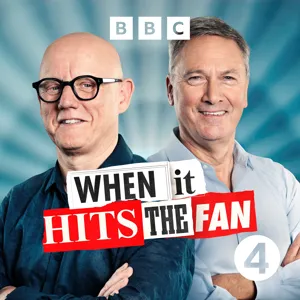Podcast Summary
Maintaining trust during crises: BBC and Northeast Ambulance Service cases: Thorough investigations and transparent communication are essential in maintaining trust during crises. Apologies and learning from mistakes can help prevent future occurrences.
Accountability and transparency are crucial in maintaining trust, especially during times of crisis. In the BBC case, the suspension of a presenter due to allegations of misconduct highlights the importance of thorough investigations and communication. The potential outcomes range from no charges being filed and keeping the name confidential, to a quick release of the name with more allegations. Meanwhile, in the Northeast Ambulance Service case, an apology was issued after an independent review found that families were not given full explanations regarding fatal errors. These incidents underscore the significance of being open and honest with the public, and learning from mistakes to prevent similar occurrences in the future.
Ukraine's NATO membership hopes and Thames Water's financial woes: Ukraine's President expresses disappointment over NATO's vague invitation, seen as a positive step towards eventual membership. Thames Water faces scrutiny over its financial situation and plans for potential collapse, despite securing additional funding.
There are significant developments on two distinct fronts: international politics and domestic business. In the realm of international politics, Ukrainian President Volodymyr Zelensky expressed his disappointment with NATO's vague invitation for Ukraine to join the alliance. Despite the lack of a clear timeframe, former US assistant secretary of state Daniel Fried viewed this as a positive step towards eventual NATO membership for Ukraine. Meanwhile, in the UK, Thames Water and its regulator Ofwat will be questioned by MPs regarding the company's financial situation and contingency plans for potential collapse. Thames Water has secured additional funding but still requires billions to address its ongoing issues with overspills and sewage problems. For a different kind of upgrade, listeners are encouraged to check out Quinn's for stylish, ethically-manufactured products at affordable prices. This Mother's Day, consider giving back to the mothers in your life with a thoughtful gift from Quinn's.
Celebrate Mother's Day with savings at 1-800-Flowers: Save up to 40% on Mother's Day gifts including flowers, treats, and gourmet food at 1-800-Flowers.com/acast before the offer ends.
1-800-Flowers is an excellent platform to celebrate your moms this Mother's Day with handcrafted bouquets, sweet treats, gourmet food, and unique gifts. The best part? You can save up to 40% on Mother's Day bestsellers by ordering now at 1-800-Flowers.com/acast. This offer is time-limited, so don't miss out on this opportunity to express your love and appreciation while saving money. With just a few clicks, you can have fresh flowers, delicious treats, and special gifts delivered right to your loved one's doorstep. This is the perfect way to make Mother's Day extra special without breaking the bank. So, go ahead and order today at 1-800-Flowers.com/acast to save up to 40% on your purchase. Your mom deserves the best, and 1-800-Flowers makes it easy and affordable to give her just that.





